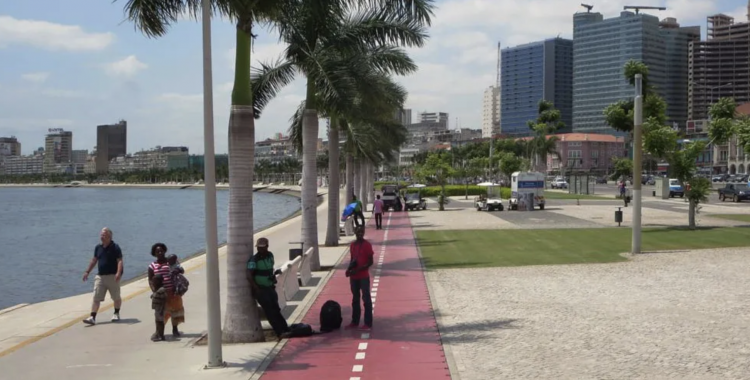According to the report on World Economic Forecasts, released this Tuesday in Washington within the scope of the IMF and World Bank Annual Meetings, Angola's growth was revised downwards, with an expansion of 2.9 percent is now forecast for this year, when in April the estimate pointed to growth of 3 percent.
In the same vein, the Fund expects Equatorial Guinea to grow 5.8 percent this year, down from the 6.1 percent estimated in April, with the aggravating factor that the economic recession estimated for next year has worsened, from 2.9 percent to 3.1 percent, showing that the evolution of the GDP of the most recent Portuguese-speaking country has been negative, on average, for almost a decade.
With a forecast of 3.8 percent growth for Guinea-Bissau, Portuguese-speaking Mozambique and São Tomé and Príncipe, with revisions from 3.8 percent to 3.7 percent and from 1.6 percent to 1.4 percent, respectively, concludes the group of Portuguese-speaking African countries about which the IMF is most pessimistic.
The Fund now estimates that Cape Verde will grow by 4 percent, instead of the 5.2 percent forecast in April, and maintains the forecast for Guinea-Bissau, whose GDP is expected to expand by 3.8 percent.
For the region as a whole, the IMF revised its growth forecast downwards, now estimating growth of 3.6 percent and 3.7 percent this year and next, with inflation rising to 14.4 percent.
"In sub-Saharan Africa, the growth outlook is slightly worse than the July forecast, with a decline from 4.7 percent in 2021 to 3.6 percent and 3.7 percent in 2022 and 2023, respectively, which represents downward revisions of 0.2 and 0.3 percentage points", reads the report on World Economic Forecasts, released this Tuesday in Washington as part of the Annual Meetings of the IMF and the World Bank.
This downward revision "reflects lower growth in trading partners, tighter financial and monetary conditions and a negative change in the terms of trade in raw materials", add IMF economists, who estimate world growth at 3.2 percent this year, down 0.2 percentage points from the July forecast, and a slowdown to 2.7 percent in 2023.
In the part of the report on sub-Saharan Africa, the IMF admits that there has been a "major revision" of the forecast of rising prices, estimating that inflation will increase from 11.1 percent last year to 14.4 percent this year, which is two percentage points more than the July forecast.
This change is essentially explained by the worsening of world economic conditions, namely the impact of the invasion of Ukraine by Russia and the consequences for the trade of food raw materials on the African continent.
"Overall, international inflation has increased, due to increases in energy and food prices for consumers, with the war driving inflationary pressures", reads the report, which points out that the sub-Saharan Africa region is particularly exposed to this negative evolution.
"Low-income countries where citizens were already suffering from malnutrition and excessive mortality before the war suffered a particularly severe impact, with especially serious effects in sub-Saharan Africa, where food represents 40 percent of the basic food basket and the effect of contagion from global prices to food prices is relatively high, at 30 percent", points out the IMF.
The rise in prices has led central banks worldwide to raise interest rates, which in the case of African countries has a doubly negative effect, as most external debt is issued in dollars, automatically making it more expensive in case of an increase in interest rates by central banks.
"This has also increased the spreads - the difference between the interest on public debt issued in dollars or euros in these lower-yielding economies, and the interest in the US or Germany -; in sub-Saharan Africa, the difference in spreads to more than two thirds of sovereign bonds surpassed the 700 basis points level in August 2022, significantly more than a year ago", warns the IMF.
The widening gap between what the US or Germany pays to issue debt, and what investors demand from African countries to buy public debt, has led many African countries to advocate a reallocation of Special Drawing Rights (SDR), as a way of getting around the difficulty of resorting to the international financial market to finance the development of their economies.
GDP growth...........2022.....2023
Angola.....................2.9.......3.4
Cabo Verde..............4.0.......4.8
Guiné-Bissau............3.8.......4.5
Guiné Equatorial.......5.8......-3.1
Moçambique.............3.7.......4.9
São Tomé e Príncipe..1.4.......2.6
SOURCE: World Economic Outlook, October 2022







